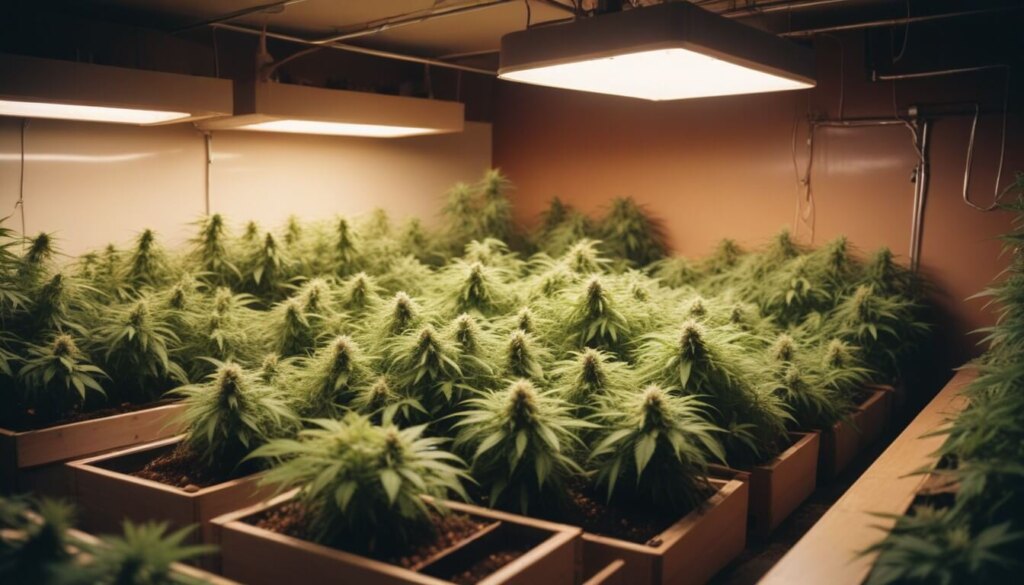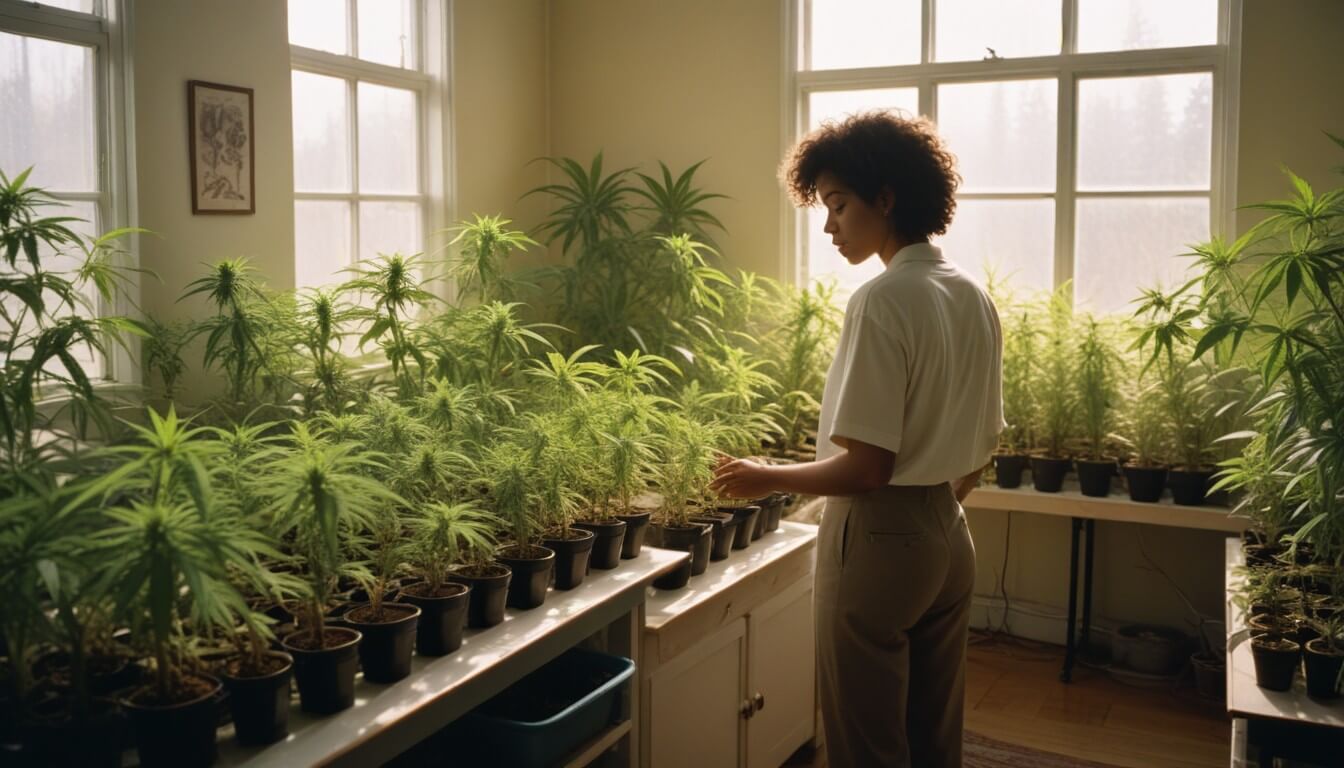On the 17th of October 2018, laws were amended in Canada for the use of cannabis for medical or recreational purposes by the Cannabis for Medical and Non-Medical Use Act.
Under these proposed laws, people aged 18 years and above can purchase and use cannabis for personal consumption, while limits to each household may vary according to legislative requirements. The rule of law requires that everyone who intends to cultivate cannabis in the house has to be aware of the law.
Personal Cultivation Under the Cannabis Act
‘Personal cultivation’ is a word that has been used to signify specific individuals who are interested in growing this plant within their boundaries. Some provisions such as the Cannabis Act of Canada are included for them.
Any person aged eighteen years or older is eligible to undertake the planting, cultivation, and harvesting of cannabis under special conditions as regulated under the Cannabis Act.
Furthermore, people of legal age can grow up to four plants at any one time within their place of residence. This provision prohibits cannabis propagation or harvesting. The goal of this limitation is to supervise personal cultivation and avoid overproduction while still permitting a reasonable amount of horticulture.
Moreover, the cultivation of cannabis seeds in the same home not exceeding four plants is allowed per adult (18 years and above) occupying the building. This, in turn, implies that no matter how many adults live in one house, it all fits into reasonable conditions.
Moreover, grown-ups aged 18 years and above are not supposed to be engaged in the commercialized process of turning the cannabis plants outside the local boundaries of their house where such permission is granted. It is the purpose of this policy to ensure that the cultivation of cannabis takes place exclusively in private residences to minimize the impact and risks.
Besides, the Act also forbids anybody to operate the cultivation, propagation, or harvesting of cannabis without necessary authorization at all from any age or type of organization. This includes any kind of farming and the cultivation of any plant from which cannabis can be derived.
Medical Cannabis Cultivation in Canada
For Canadian citizens who wish to cultivate Cannabis, certain regulations should be followed as specified by Health Canada. These regulations are designed to ensure the safe and responsible production of cannabis for medical purposes.
To qualify for medical cannabis cultivation, individuals must meet specific requirements:
- Residency: They must ordinarily live in Canada.
- Age: Applicants must be 18 years of age or older.
- Legal History: They must attest that they have not been convicted of a cannabis-related offense.
- Registration Limit: Individuals can only be registered once at any given time.
If authorized to produce cannabis for personal medical use, individuals may also be permitted to produce for one other person if designated as their caregiver.
Furthermore, individuals may need to register with Health Canada to legally possess cannabis in public, particularly if they intend to access cannabis solely from authorized retail outlets or online platforms. This registration does not permit personal cultivation but allows possession above the non-medical limit.
Upon successful completion of the registration process, Health Canada issues a registration certificate. This certificate serves as legal proof of the individual’s ability to produce or possess a limited quantity of cannabis for medical purposes. It may also specify the daily quantity of cannabis authorized by the healthcare provider and the number of plants allowed for cultivation based on regulations.
Commercial Cultivation Licensing in Canada
In Canada, the objective of having a commercial structure that relies on cannabis is to acquire a license from Health Canada. Being listed there, the companies will be engaged in the promotion of medical cannabis by growing marijuana plants, manufacturing cannabis products, or selling cannabis for medicinal purposes.
Micro-Cultivation, Nursery, and Standard Cultivation Licenses
The license grants growing privileges to an individual or a company for commercial purposes. The role of cannabis reform in social justice is also at the forefront of this dialogue.
Micro-Processing and Standard Processing Licenses
These permits are either issued to personal or company owners who are involved in building or creating cannabis products. Micro-processing licenses meet the requirements of the simple level and the Standard processing licenses, bigger facilities that expand their capacity by doing various processing activities.
Sale for Medical Purposes License
This license allows individuals and institutions to be able to sell marijuana for curative uses. It enables the delivery of cannabis items straight to patients who procured state-issued medical authorization from the health practitioner.
Each license type has its application process, which requires submission of outlining of the proposed activity, facility design, security measures, quality control process, and personnel credentials. Health Canada reviews all the applications to be sure that they comply with the standards of regulatory norms that target the diverse issues of social and health safety.
After passing through the licensing process, license holders must duly and unconditionally abide by the highly regulated applicable commercial cannabis rules and regulations during the entire cycle, consisting of cultivation, processing, packaging, labeling, distribution, and retail sales.

Recent Legal Developments and Provincial Variations
There has been a remarkable growth in utilization rates of cannabis which can be seen across the country. Approximately 22% of participants from Canada who are at least 15 years of age and higher, revealed that during the past year, they had consumed cannabis.
Nevertheless, the minority of provinces differs in this regard, with the most having higher rates of hashish use in BC, Alberta, Ontario, NS, and PEI, whilst Quebec, on the contrary, holds the lowest rate.
It cannot be guaranteed how growth will be affected by a change in consumption patterns; the market still has great potential to double in size. Forecasts show that the revenue for this industry will come close to US$5 billion by the end of 2024, while over 3% average annual growth is expected by 2029. This growthable industry certainly shows a substantial economic future for the cannabis industry in Canada.
When compared to other countries, Canada’s cannabis market performance is noteworthy. While the United States is expected to lead in revenue generation by 2024, Canada’s per capita revenue is projected to be approximately US$0.39k, highlighting the industry’s substantial economic impact on the country’s population.





